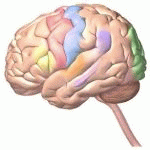Neurology
|
7 october 2018 02:01:46 |
| Using the Analytic Network Process Method for Prioritizing and Weighing Shift Work Disorders Among the Personnel of Hospitals of Kerman University of Medical Sciences (Journal of Circadian Rhythms) |
|
Tweet Introduction: Increasing population, the need for services, and industrialization of societies have led to a growing demand for shift work. Shiftwork causes several disorders, and determining the weight of each disorders is important for their prevention and treatment. Therefore, the purpose of the present study was to use Analytic Network Process (ANP) to prioritize and weigh shift work disorders among the personnel of hospitals of Kerman University of Medical Sciences.Methods: This cross-sectional, descriptive-analytical study was conducted in 2017 among 300 shift work personnel of 10 public hospitals affiliated with Kerman University of Medical Sciences. ANP was used to prioritize and weigh shift work disorders. To this end, the criteria, sub-criteria, and alternatives were initially identified. Then, shift work disorders were categorized into 7 general criteria, 20 sub-criteria, and 3 alternatives. After designing the ANP and determining the effect of each criterion on the sub-criteria, the ANP questionnaire was developed and administered among the shift work personnel, who filled it out based on ANP. Super Decisions was subsequently used to weigh and prioritize shift work disorders.Results: The results indicated that shift work disorders among the nurses included sleep disorders (0.297), psychological disorders (0.275), digestive disorders (0.137), personal life disorders (0.122), etc., in that order of weighing. With respect to the support staff, the major shift work disorders involved sleep disorders (0.252), digestive disorders (0.198), personal life disorders (0.168), and psychological disorders (0.164). Considering security personnel, the top four shift work disorders were sleep disorders (0.201), digestive disorders (0.186), psychological disorders (0.174), and personal life disorders (0.145).Conclusion: According to the findings, sleep disorders had the highest weight in the three studied groups. Moreover, the night shift had the most profound effect on shift work disorders among the personnel in the three groups. It was followed by the evening shift. Morning shift had the lowest influence on shift work disorders. Therefore, the schedules should be taken to prevent these complications in the shift workers. It is suggested that work shift complications be included in the periodic examination program and, in case of discovery of any rhythmic disorder in each shift workers, the person should not remain in the shiftwork group for some time. Published on 2018-10-04 12:26:24 |
| 100 viewsCategory: Neurology |
 Replication and novel analysis of age and sex effects on the neurologic and functional value of each spinal segment in the US healthcare setting (Spinal Cord) Replication and novel analysis of age and sex effects on the neurologic and functional value of each spinal segment in the US healthcare setting (Spinal Cord)Blood-based biomarkers for Alzheimer disease: mapping the road to the clinic (Nature Clinical Practice Neurology) 
|
| blog comments powered by Disqus |
MyJournals.org
The latest issues of all your favorite science journals on one page
The latest issues of all your favorite science journals on one page



